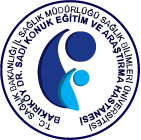ABSTRACT
Conclusion:
CBLC gel is an effective treatment option for the patients who have suffered from mild to moderate dry eye syndrome.
Results:
The mean age of 30 patients was 53.79±12.73 years. At baseline, the mean for TBUT was 5.03±1.04 second and 9.81±4.95 mm for Schirmer’s test. The TBUT score increased to a mean of 8.12±1.61 second and the Schirmer’s test score increased to a mean of 13.15±5.08 mm after the 4-week treatment. Subjective patient assessment was better after the treatment, the mean for the OSDI score was 50.59%±13.29% at baseline and 36.86% ±11.93% after the 4-week treatment. These changes for TBUT, Schirmer’s test, and OSDI scores were statistically significant (p<0.05).
Material and Methods:
A 4-week and retrospective study was conducted. A total of 60 eyes of 30 patients with mild to moderate dry eye syndrome were included and treated with the CBLC gel two times a day within twelve hours interval. The primary end point was global assessment of study treatment by the patients before treatment and at the end of a 4-week treatment. All patients met the diagnostic criteria of impaired tear function and ocular surface abnormalities. Outcomes measured at baseline and at the end of the 4-week treatment included Schirmer’s test, TBUT, and OSDI values.
Objective:
The aim of this study was to assess the effect of the carbomer-based lipid-containing (CBLC) gel on tear break-up time (TBUT), Schirmer’s score, and ocular surface disease index (OSDI) through a one-masked clinical trial in patients with dry eye syndrome.



